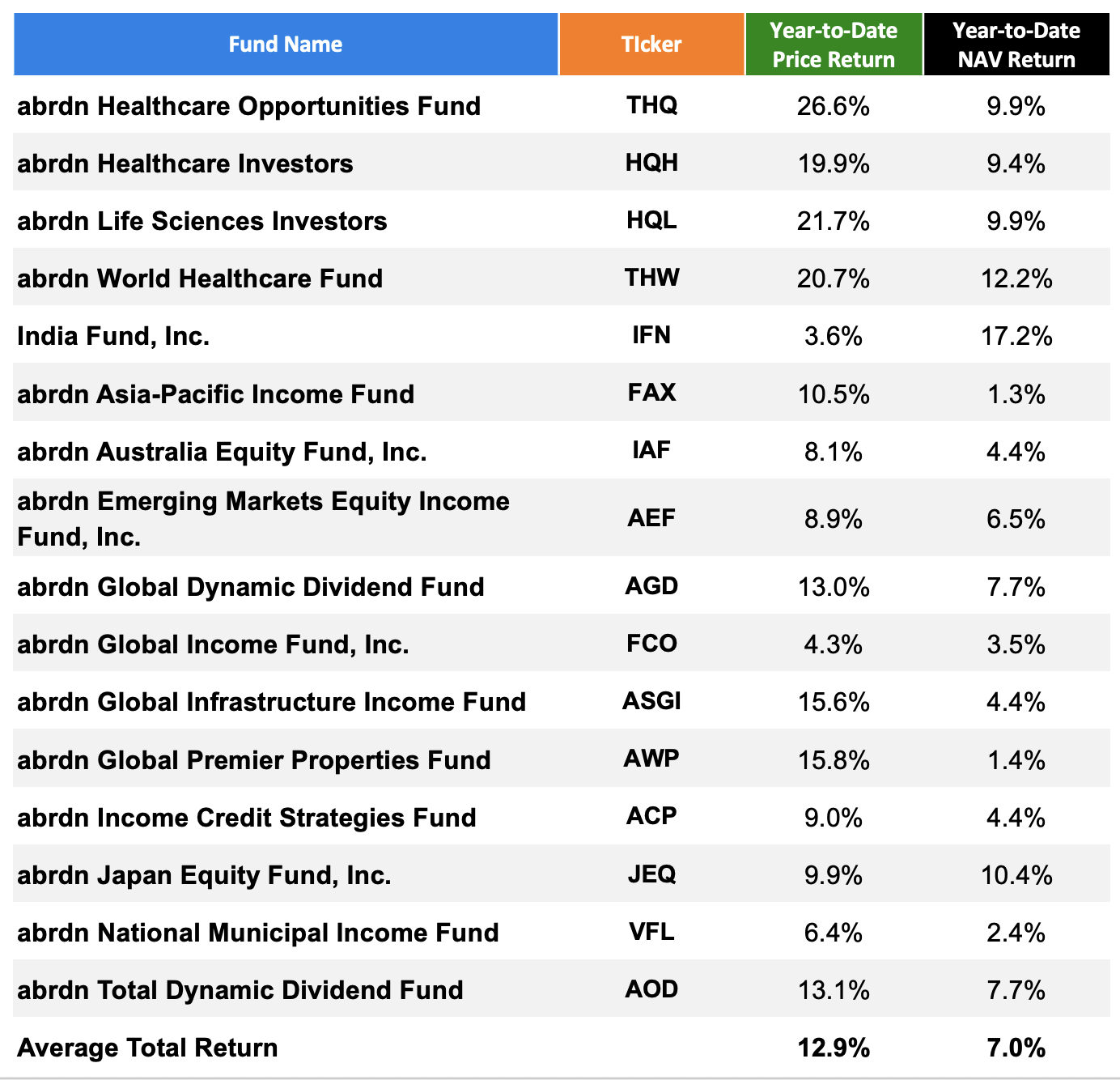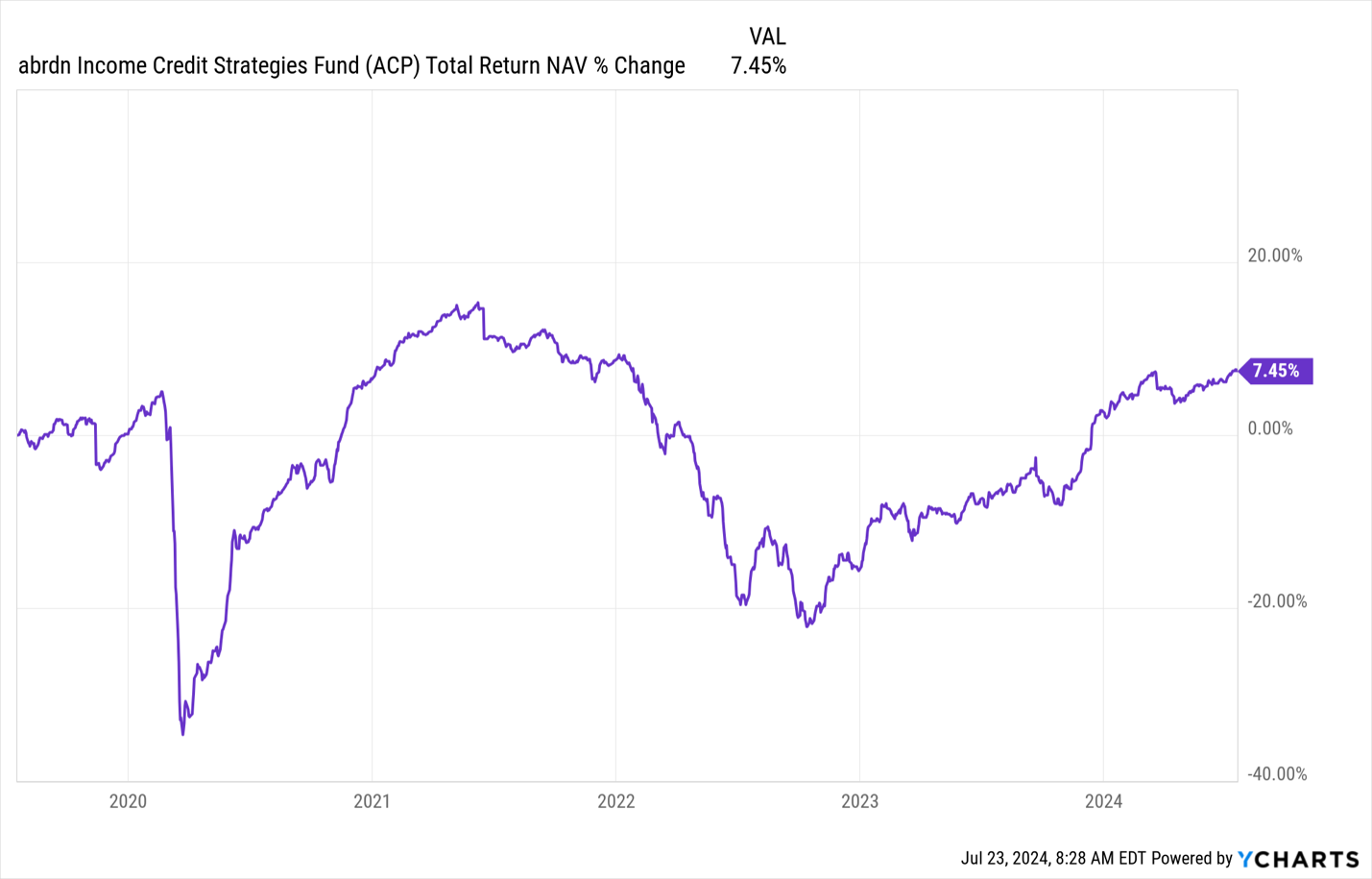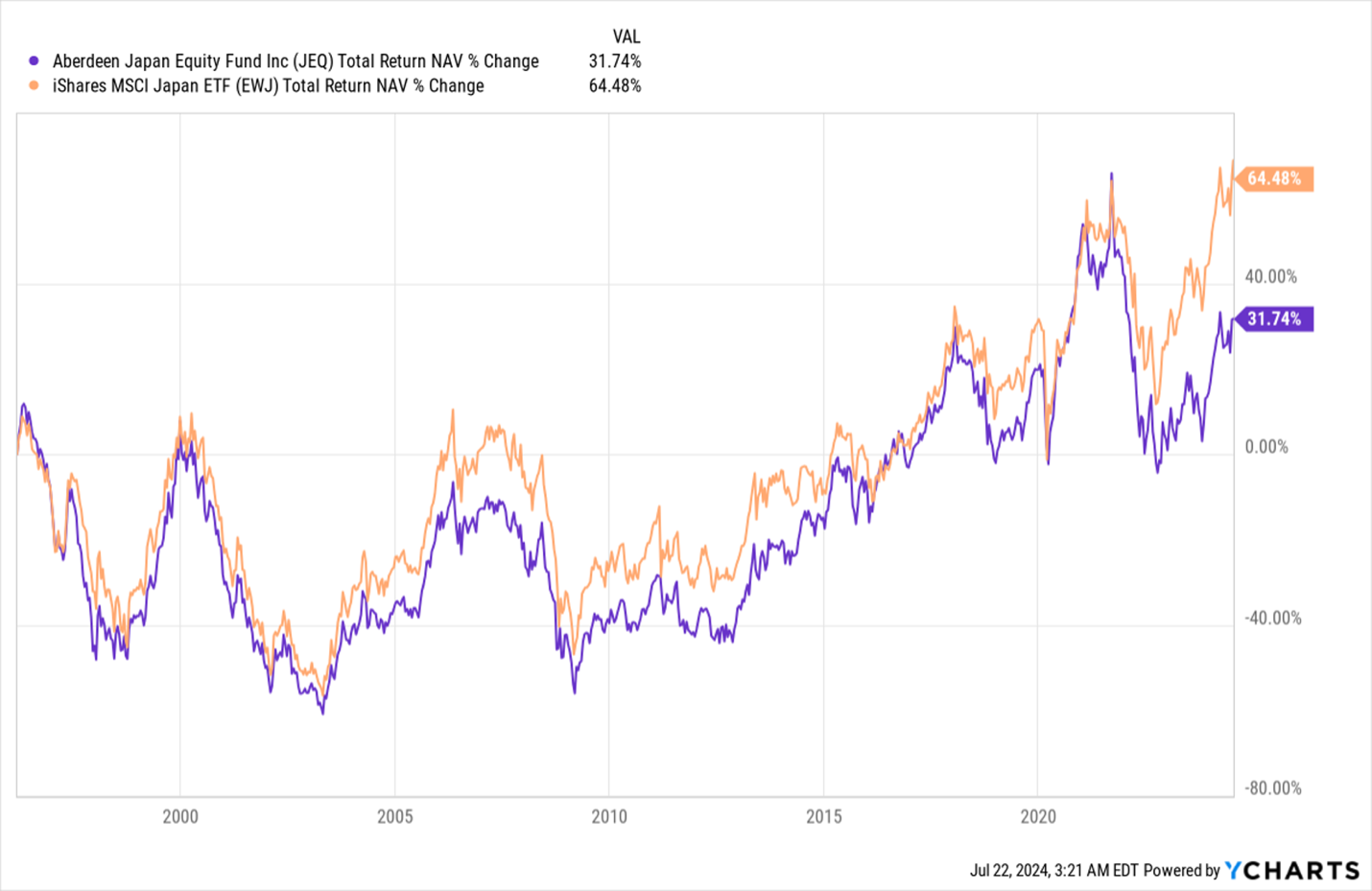Few people pay much attention to the management team of a closed-end fund (CEF). But it’s becoming a much more critical factor driving CEF upside (and downside!), as well as these funds’ 8%+ dividend payouts.
I was reminded of this recently by a story that’s unfolding in the UK, where two asset-management firms are struggling a bit to hire CEOs. One is Scotland-based abrdn plc (SLFPF), whose shares have risen just 2.6% annually in the US on average over the last decade.
Compare that to a roughly 10% average year-to-date return enjoyed by the other major asset managers abrdn is competing with, and you get a good idea of what’s happening here: abrdn isn’t doing well enough to attract the best talent.
This is also visible in the performance of abrdn’s CEFs, particularly their total NAV return (shown at right below), or the performance of their underlying portfolios, including dividends received.
This is a better measure of management performance than market-price-based returns, which are more sensitive to shareholder whims.
Just like abrdn’s stock, its funds are underperformers. With currently just a 7% total NAV return year to date as of this writing, management is underperforming the S&P 500 (up 16.2%) and global stocks, since the Vanguard Total World Stock ETF (NYSE:VT) is up 11.9%.
As the firm struggles to fill the executive suite, there’s really no reason to suggest this will change anytime soon.
This is now a risk for abrdn CEFs, since CEFs can, and often do, trade at discounts to NAV. Of abrdn’s 16 managed CEFs, two trade at premiums.
The best performer of those in the last five years is the abrdn Income Credit Strategies Fund (NYSE:ACP), with a 1.2% premium.
In other words, investors are paying above market price for abrdn’s ability to turn a profit with this fund.
ACP Disappoints Despite Premium Pricing
As you can see above, ACP has turned a profit over the last five years on a total NAV return basis, but just 7.5%. That’s an annualized total return of 0.45% per year—less than you’d get from a savings account.
With performances like that, it’s not surprising abrdn is struggling to fill the top job. Which also means that, until their record gets back on track, I’m struggling to see any reason to buy any fund the firm offers, especially if those priced at premiums.
What about discounted abrdn funds? Funny thing here is the markdown on abrdn’s most-discounted fund, the abrdn Japan Equity Fund (NYSE:JEQ), is actually quite reasonable.
The biggest appeal of JEQ should be its 16.9% discount to NAV as of this writing, far more than the 6.7% average discount across all CEFs on the market.
Except that discount is unlikely to go anywhere soon, since JEQ (in purple below) underperforms the Japanese stock market, shown by the iShares MSCI Japan ETF (NYSE:EWJ) in orange.
JEQ Keeps Lagging
Note how the gap between the orange and purple lines has widened in recent years.
This shows that while Japanese stocks are experiencing a renaissance, JEQ shareholders are being left behind.
Obviously, even the most discounted abrdn CEF still isn’t discounted enough, which means we need to look elsewhere for sustainable high yields and growth.
Disclosure: Brett Owens and Michael Foster are contrarian income investors who look for undervalued stocks/funds across the U.S. markets. Click here to learn how to profit from their strategies in the latest report, "7 Great Dividend Growth Stocks for a Secure Retirement."
